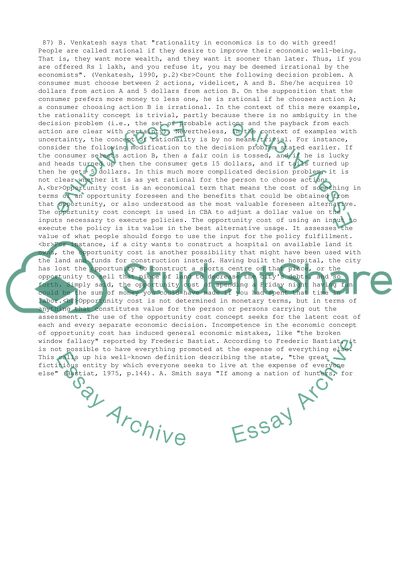Cite this document
(“Economics as a collection of analytical tools - concepts of Essay”, n.d.)
Economics as a collection of analytical tools - concepts of Essay. Retrieved from https://studentshare.org/business/1508781-economics-as-a-collection-of-analytical-tools-concepts-of-rationality-opportunity-cost-comparative-advantage-and-the-margin
Economics as a collection of analytical tools - concepts of Essay. Retrieved from https://studentshare.org/business/1508781-economics-as-a-collection-of-analytical-tools-concepts-of-rationality-opportunity-cost-comparative-advantage-and-the-margin
(Economics As a Collection of Analytical Tools - Concepts of Essay)
Economics As a Collection of Analytical Tools - Concepts of Essay. https://studentshare.org/business/1508781-economics-as-a-collection-of-analytical-tools-concepts-of-rationality-opportunity-cost-comparative-advantage-and-the-margin.
Economics As a Collection of Analytical Tools - Concepts of Essay. https://studentshare.org/business/1508781-economics-as-a-collection-of-analytical-tools-concepts-of-rationality-opportunity-cost-comparative-advantage-and-the-margin.
“Economics As a Collection of Analytical Tools - Concepts of Essay”, n.d. https://studentshare.org/business/1508781-economics-as-a-collection-of-analytical-tools-concepts-of-rationality-opportunity-cost-comparative-advantage-and-the-margin.


